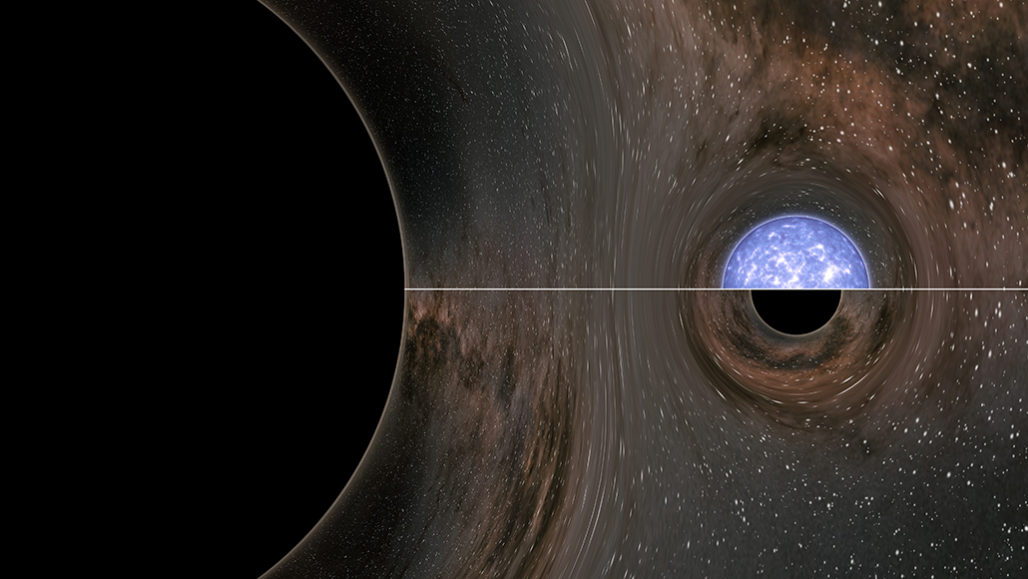 |
In a first, the LIGO and Virgo gravitational wave detectors have spotted a collision between a black hole (illustrated left) and a mystery object (right), which could be either the heaviest neutron star ever discovered or the lightest black hole.
|
Ripples in spacetime have revealed a distant collision between a black hole and a mystery object, which appears too massive to be a neutron star but not massive enough to be a black hole.
At first glance, the event — detected by the LIGO and Virgo gravitational wave detectors on August 14, 2019 — looked like a collision between a black hole and neutron star (SN: 8/15/19). But a new analysis of the gravitational waves emanating from the merger tells a different story. It shows that a black hole about 23 times as massive as the sun crashed into a compact object of about 2.6 solar masses, researchers report June 23 in the Astrophysical Journal Letters.
That 2.6-solar-mass object is heavier than the presumed 2.5-solar-mass cap on neutron star size. But it’s smaller than the most lightweight black hole ever observed, which is about five solar masses. “We have [here] either the heaviest known neutron star … or we have the lightest known black hole,” says Cole Miller, an astrophysicist at the University of Maryland in College Park not involved in the work.
Neutron stars, which are dense stellar remnants left behind by stellar explosions, are thought to max out at about 2.5 solar masses because any larger star is liable to crumple under its own weight. Black holes less than about five solar masses are theoretically possible, “we just have had no observational evidence of such low-mass black holes,” says coauthor Vicky Kalogera, an astrophysicist at Northwestern University in Evanston, Ill. That could mean such objects are very rare, or that they’re just so difficult to spot that they’ve been overlooked in past searches.










Δεν υπάρχουν σχόλια:
Δημοσίευση σχολίου